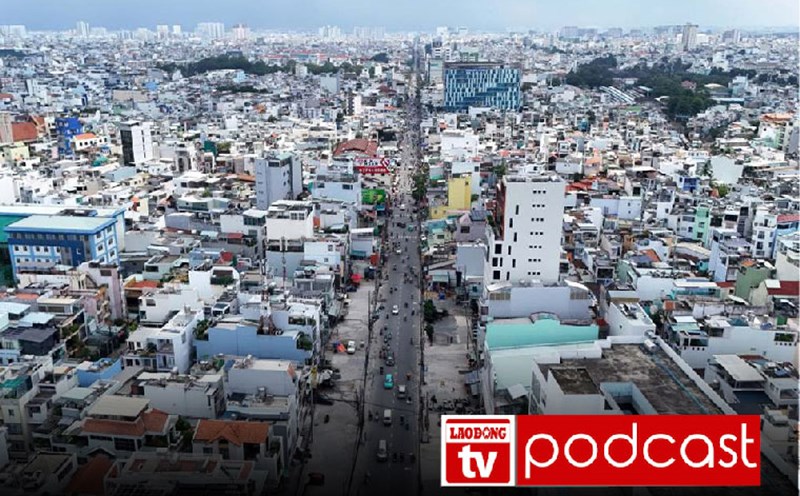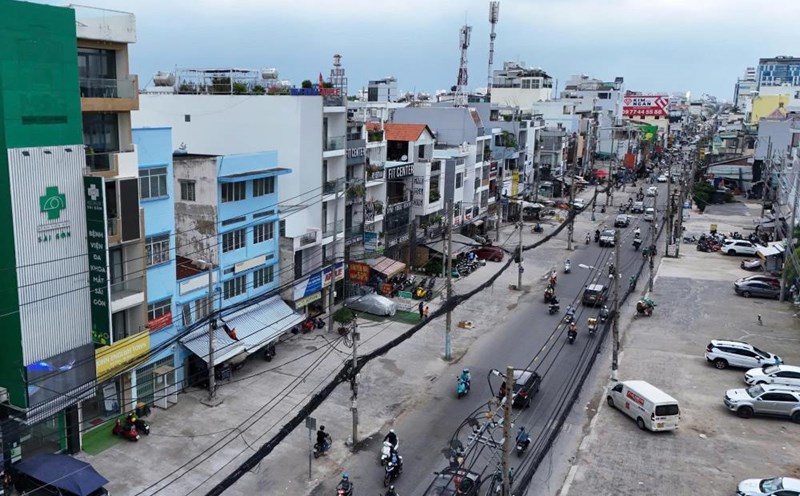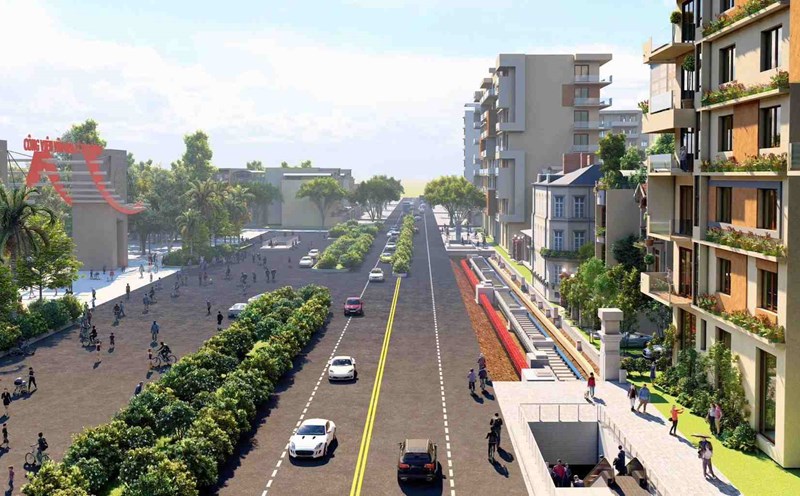Metro No. 2 has great appeal
Among the metro lines preparing to be deployed, Metro Line 2 (Ben Thanh - Tham Luong), over 11km long, connecting the city center with the Northwest region, is currently receiving the most attention from investors. The total investment capital for this metro line is more than 2.1 billion USD (nearly 47,900 billion VND).
Recently, a consortium including Deo Ca Group, Fecon Company (Vietnam), PowerChina Group and Sucgi Company (China) has proposed to participate in investing in Metro Line 2 as well as other urban railway lines in Ho Chi Minh City.
Previously, Truong Hai Group ( Thaco) proposed to study investment in Metro Line 2 (Tham Luong - Ben Thanh section and Ben Thanh - Thu Thiem section) and at the same time hoped to deploy the Thu Thiem - Long Thanh railway line, nearly 42km long, with a total investment of about 3.4 billion USD.
In addition, the joint venture of Dai Dung Group and Construction Corporation No. 1, Hoa Phat Group also wishes to participate in the construction of metro lines, especially Metro Line 2.
Sovico Group has proposed investing in Metro Line 4 with a length of 47.3km (Dong Thanh - Hiep Phuoc Industrial Park). Meanwhile, Gamuda Land (Malaysia) wants to participate in investing in the metro line connecting Ho Chi Minh City with Long Thanh International Airport.
Another outstanding project is the metro line from the center of Ho Chi Minh City to Can Gio proposed by Vingroup Corporation. This project is about 48.7km long, starting at Nguyen Van Linh Street and ending at the land adjacent to Can Gio coastal urban tourism area. The total estimated investment capital is more than 4 billion USD. It is expected that the project can start construction in early 2026 after completing investment preparation procedures.
piloting bidding in Metro Line 2
Ho Chi Minh City is aiming to develop a large-scale urban railway system to increase the rate of people using public transport to 40-50%. According to the plan, from now until 2035, the city will build 7 metro lines with a total length of 355km, with a total investment of more than 40 billion USD. In the following period (2035-2045), the system will continue to expand by 155km, bringing the total length to 510km.
The investment and implementation of metro projects is expected to be accelerated thanks to Resolution 188 of the National Assembly on piloting specific mechanisms and policies for urban railway development in Hanoi and Ho Chi Minh City. In particular, Ho Chi Minh City is allowed to apply the forms of bidding for consulting, non-consulting and EPC packages, while streamlining many investment procedures to ensure progress.
The Metro No. 2 project will be the first route for Ho Chi Minh City to apply these specific mechanisms, expected to start construction at the end of 2025.
Private investment will be effective and cost-effective
Chairman of the Ho Chi Minh City People's Committee Nguyen Van Duoc said that the city is very welcoming and creating conditions for Vietnamese enterprises to participate in large infrastructure projects such as metro.
"Investing in metro not only saves the budget but also helps speed up progress. When businesses invest with their own money, they will do it more closely and meticulously" - Mr. Duoc emphasized.
Experts say that the wave of private investment in metro in Ho Chi Minh City is the result of two important resolutions: Resolution 188 of the National Assembly on urban railway development and Resolution 68 of the Politburo on private economic development. These policies have paved the way, arousing the spirit of proactiveness, daring to think, daring to do of the domestic private enterprise sector.
Dr. Nguyen Quoc Hien - Deputy Head of the Ho Chi Minh City Urban Railway Management Board (MAUR) assessed that Resolution 188 has "untied" the urban railway sector with 5 groups of mechanisms: Mobilizing capital, reducing investment procedures, developing urban areas according to the TOD model, promoting the railway industry and training human resources, along with policies to support construction materials and treat waste.
Prof. Dr. Vo Xuan Vinh - Director of the Institute of Business Research (Ho Chi Minh City University of Economics) - said that private enterprises are now more confident, ready to invest and accept risks to take on great responsibilities.
According to Mr. Vinh, the characteristic of metro projects is that they need a lot of capital, the capital recovery time is long, and previously, most of them relied on ODA capital. With the participation of large domestic private enterprises, the implementation progress will be accelerated thanks to the ability to mobilize flexible capital and the determination to ensure quality and maintain brand reputation. HCMC will have the opportunity to form a metro system that achieves all three factors: Quick, efficient and budget-saving - Mr. Vinh commented.











